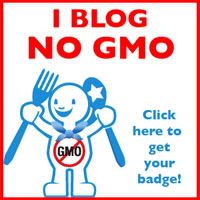There are many other fruits and vegetables that don't grow here in Florida and we want to enjoy those too like apples, pears, pineapple (yeah, we can grow 'em here but ain't nothin' like a Costa Rican golden pineapple, c'mon now!), ataulfo mangos, potatoes, garlic, herbs, broccoli, cauliflower, yams, well you get the idea. For a more diverse menu we turn to Georgia, the Carolinas, California, New Zealand, and yes, even Mexico. Mexico together with New Mexico, Arizona and California are the best North American regions for growing consistently good quality fruits and vegetables and therefore the majority of farming is found there, both conventional and organic farms.
 Recently in our buying club a few members had concerns about using produce from Mexico due to the swine flu. I want to assure you that there is absolutely no need for concern. There is no way we can get the swine flu from eating produce from Mexico. The fact is that the flu simply cannot be carried or transmitted by consuming produce grown in Mexico.
Recently in our buying club a few members had concerns about using produce from Mexico due to the swine flu. I want to assure you that there is absolutely no need for concern. There is no way we can get the swine flu from eating produce from Mexico. The fact is that the flu simply cannot be carried or transmitted by consuming produce grown in Mexico.It's important to remember that most of those Mexican organic farms are American owned. The Mexican farms must meet the same NOP guidenlines as the farms here in the United States. Over the years, I have heard from people hesitant to purchase any food from Mexico based upon rumors they had heard about how things are grown. But we only choose farms that are certified organic. The organic certification in Mexico, like in the U.S. and elsewhere, is important. In addition, we choose Mexican farms with the additional third party PRIMUS certification which means that those farms must adhere to regulations that are far stricter than those of farmers here in the USA. We feel confident personally using and promoting Mexican organic produce and organic third party certified farms outside the U.S.; indeed we think it is essential to support organic farms period.
 Of course, supporting a small local farmer is truly important and we do buy locally first. But when we cannot find local produce, we do choose organic over local conventional produce. With every purchase we support the organic industry. This includes smaller farmers and cooperatives outside the U.S., big farms in the U.S., and local farms making a difference by working in ecological harmony with our planet. Organic farming is one family, no matter that some are outside the United States, it's vitally important to support the organic mission. It's better for our future, the future of our planet, our health, our children, and our environment. As a friend of mine said recently "organic farms should not have borders."
Of course, supporting a small local farmer is truly important and we do buy locally first. But when we cannot find local produce, we do choose organic over local conventional produce. With every purchase we support the organic industry. This includes smaller farmers and cooperatives outside the U.S., big farms in the U.S., and local farms making a difference by working in ecological harmony with our planet. Organic farming is one family, no matter that some are outside the United States, it's vitally important to support the organic mission. It's better for our future, the future of our planet, our health, our children, and our environment. As a friend of mine said recently "organic farms should not have borders."When we choose to avoid Mexican organics, we are hurting a small community. When we choose to avoid Fair Trade products, we are hurting a family. These countries rely upon our purchases to support better schools, a stronger community, and even the simple things in life we take for granted like running water, schools for learning, and a clean, safe place to live. The result if we choose to avoid organics from Mexico is clear. If we do not support organic Mexican farms, they will close down. Yes this will have a direct impact on the people living in those communities working those farms, but let us not forget that this will impact us too. Fewer organic farms will exist to meet demand which will in turn cause prices to increase for us.
It's important to make conscious decisions for our planet and informed decisions for our life. Every single purchase we make impacts our life and the lives of loved ones with us, as well as the lives of others we don't see, and our planet. We choose organic for people, planet, and purpose.
Top picture courtesy cbcnews.ca


























Excellent post, Annie. Thank you for your logic and sanity!
ReplyDeleteBravo Annie, very succinct and persuasive!
ReplyDeleteThis comment has been removed by a blog administrator.
ReplyDeleteI have a friend that's a pediatric nurse in ER and her last Twitter update was: "Um, no ma'am, your son cannot get swine flu from those ant bites on his ankle. NEXT!"
ReplyDeleteShe has the best stories...
Very, very good post. I think a lot of people are misinformed when it comes to swine flu and what poses a risk and what doesn't. For us, we buy everything primarily from local growers who attend the farmers market that my husband and I run. But in the depth of winter, I have no problem choosing organic over nonexistent local produce.
ReplyDeleteIt's nice to know that, despite the hysteria the media keeps showing, most people are still thinking rationally!
ReplyDeleteThis is really nice message blog annie. Thanks for sharing.
ReplyDeleteDatastage
I understand finding other sources but I'd rather use local sources that I can see with my own eyes. Part of the reason I am doing this is to know my source or at least know where the source is. To know that I am eating food that hasnt traveled a 1000 miles to my table. Because to do so and be presentable when it gets to me it has to be picked before it is ripe. Just seems slightly counter productive to me. I'm not worried about swine flu but I am worried about nutritionally lacking food sitting on my kitchen table.
ReplyDelete